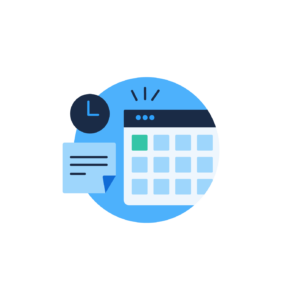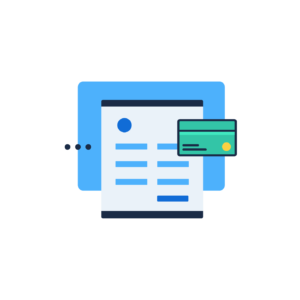Despite advertising to the contrary by some debt settlement companies, you are well-positioned to settle your own debts with your creditors. In other words, there is no need to pay a lot of money to a debt settlement firm to negotiate for you, and DIY debt negotiation means that you’ll have more money to put toward your debts. You can get out of debt faster by settling your unpaid bills yourself.
However, you’re more likely to settle your own debts successfully if you have a clearer understanding of the settlement process and know how to make it work for you.
I am here to support your do-it-yourself efforts with information, advice and encouragement found throughout this site. You also have access to one on one coaching, and even full service debt negotiation. But I believe that anyone inclined to settle debts on your own should take that path first.
Let’s get started with the basics of debt settlement.
Something is often better than nothing to banks and debt collectors.
Creditors understand that a certain percentage of the consumers they extend credit to won’t be able to repay what they owe. Banks set aside a reserve for losses as a result of defaults, but they also want to minimize the amount of those losses. One way that many banks will try to lose less on debts that go unpaid is to agree to settle for less than the full amount owed.
Each creditor will have it’s own policy regarding what it will settle a debt for. For example, you may find that you are able to save 60% with one creditor, but only 45% with another. Read more about why banks settle debt.
Something that often goes under appreciated – when negotiating your bills for a lower lump sum settlement – is timing.
The creditor you’re negotiating with may reject your offer, maybe because it’s too small, in which case you may want to increase the size of your offer, if you can afford to. It’s also possible that your offer was rejected because you’re off on your timing, or because there was irregular activity on your account prior to your default.
For example, before you stopped paying on the account you tapped it for large cash advances, used it for balance transfers, or you suddenly began using your card much more than you had in the past. Of course, some creditors may simply refuse to settle with you, in which case you’ll have another shot at settling if your account is sent to a debt collection agency, or sold to a debt buyer.
Try settling debt yourself, and sooner rather than later.
If you are going to negotiate with an original creditor (the lender that extended you credit), you usually want to do so before the account is more than six months past due. Otherwise, you’ll often have to try to negotiate a settlement with the collection agency that your creditor may hire to collect your debt, or with the agency that may purchase the debt.
Who is collecting your debt can often impact how low your settlements can go on different accounts. You will want to identify the creditors that offer the best savings the earliest in order to get the most from your available money.
It’s also possible that after the six months are up, your creditor will give your debt to an attorney who is authorized to sue you for the money. Sometimes you will want to settle with more aggressive debt collectors earlier, so it is important to know who is currently the hardest to negotiate with, and how time is sometimes going to be a factor.
Time, or lack thereof, is one of the key reasons why DIY debt settlement is the way to go.
Complexities do exist when negotiating and settling debts. The more accounts you have – the more strategic you will need to be in how you prioritize – so that you maximize savings and defer risks.
I cover all of these topics on this site.
DIY debt negotiation offers flexibility.
Although settling a debt is not difficult, when you take the DIY route to negotiating debts yourself, you can end up feeling frustrated or unsure about what to do next. That’s why having the support and assistance of a site like this one can be so helpful. You get to learn from other people that have gone before you, and also get feedback from debt relief experts.
You can work one on one with someone in the network in order to make sure that you understand the details and nuances of the process and provide encouragement and support when you need it. It is good to know when you should bend this way, or that, and when to stretch to reach a settlement that you would otherwise not want to miss (no better low balance offer is likely to come). I would not offer to coach you through DIY debt settlement off line if I thought the website was the only tool anyone needed. DIY debt settlement is not for everyone (though I have changed many peoples opinions about this), and if it is not for you I would encourage you to request a consult with me.
This site provides you with all of the information and tools needed to settle your own credit cards, and other bills, and often as well as anyone could negotiate the debts for you. Anyone with questions or concerns about how to get started with settling your debt yourself is welcome to post in the comments below for feedback.



Hi, Michael
I’ve just missed my very first payment and both Citi and Chase are calling me a minimal 4 times a day. Is this normal practice? I do have the calls blocked and sent straight to voice mail.
Thanks!
Yes, it is pretty common for banks to blow up your phone right away. Statistics show their best chance to get you back on track with payments is in the first 90 days you fall late, so more calls to come for sure.
I cover how to insulate yourself from collection calls at the earliest stage of settlement in this video: https://youtu.be/5Am5dZAcpc4
Hi Michael,
Hope all is well! I spoke with you on a consult a couple of weeks back-I owned a B&M business and had to close my doors permanently due to COVID restrictions, was unable to qualify for any government small business relief and I am not eligible for chapter 7 because of my husband’s income (we are a family of 5). I want to DIY my settlements, but I was hoping for a bit more guidance on contacting a couple of cards that are at the 5/6 month non-payment mark. I told you I had a PayPal business loan and was able to get a settlement of 40% of the balance in one payment so that was a win! I’m nervous, however, about contacting these credit cards because one did not want to work with me when I called about a month 1/2 ago. These personal cards were 80-90% used for business expenses and until all revenue ceased from Covid lockdowns, I always paid monthly on every card, usually more than the minimums. I’ve been responsible and never missed payments to them, some cards I’ve had for several years to over a decade:
Nordstrom Visa (no Nordstrom purchases in years)-last paid date 4/1/20, had COVID relief for a couple of months of no late fees-still got charged interest- which ended a couple of months ago. Balance owed $16,646.16. When I spoke with them on 10/12 they said they would settle at $12,259.00 split into 3 payments (at that time balance was $16,344.64). The lady said I could call again in 30 days to see if they can do anything more but she was pretty firm that they weren’t able (or willing) to work a better deal with me
Chase-last paid date 4/22/20. I had Covid assistance for I think 2 months which ended in July. They have closed my account and the total balance owed is $6409.38. I have not spoken to anyone via phone-the inquiries I believe have to be online from what I read in their “we want to work with you” letter
Citi Best Buy-last payment date May 2020. Balance owed $1877.25. I have not spoken to them but get many calls regarding this card
The rest of my cards are around the 3 month mark. The only other card I’m concerned about at the moment is my Capital One Spark business which is at the 3/4 month mark (last payment 7/8/20). Current balance is $10,449.62-it was under $10k a few months ago but I’m getting hit with penalties and then interest on top of those inflated balances…I called them a month or so ago and they said I was ineligible for any settlement whatsoever or even an interest rate reduction (I just asked that for fun).
Can you please give your insight into what these banks are doing in real time regarding settlements and what % I could realistically get approved-I could possibly make a lump sum payment although I’d prefer to do a 3-12 month payment plan if I can get it. Also if you can give any tips on how to start the conversation when I call-I’ve read all of your posts but I need direction on being concise, to the point and not giving too many details (as I clearly exemplified in this long inquiry lol).
Thank you, in advance, for your help with this. I truly appreciate it and look forward to hearing from you!
Best, A.O
The Nordstrom Card with TD Bank I would wait until you are a couple weeks short of 180 days late to talk settlement. I tend to see 50% deals with them, but lately there have been a sprinkling over lower outcomes.
Chase settlements are often between and 45 percent. The better deals often come form the collection agencies your account goes to after you are more than 6 months late.
You could potentially settle with Citi now at around 40%. They do use collection agencies, and sell to debt buyers. All of whom you can settle with too.
That CapOne account you may want some help with, but a couple months from now. Keep trying.
Here is a good video of how to talk to the banks and collectors.
Hi Michael,
Hope all is well! I spoke with Nordstrom and they said they would settle my account for $9160 which is about 55% (current balance $16646.16). Previously in October they would only settle for 75% or $12,259 on a balance of $16,344.64 (has since increased due to late fees and interest). They said I would have 90 days to pay it and the offer is good for 30 days. I am at about 6/7 months since my last payment although I had a couple of months of the Covid help (no payment due + no late fees or penalties). Do you think if I wait another month I can get it down to 40-45%? Or should I call back and offer 45% and see if they will agree? I don’t want to run the risk of getting sued by waiting it out too long.
Also, I cannot get ahold of Chase via phone and the only way to request assistance is to fill out their online form where it asks for household income and expenses before it will give any payment options. As this is a business debt, I don’t want to include all of my household info-I want to tell them that my business was forced to close and all of that income is zero (even though I still have had expenses to pay off). Should I go through their system or wait for the card to be sold to a debt collector?
Thank you for all of your help!
Best,
AO
If it were me, I would still try to get TD Bank to come down a little on the Nordstrom credit card settlement. Settlements with TD bank are often around 50%, but I have seen a few a tad lower recently.
Chase has not sold debt since 2013, so your account is going to go to a collection agency after Chase charges the account off. How late are you with payments to Chase? Did they offer payment deferral that you took, and if so, how many months of that?
Hi Michael!
Thanks for the quick reply. Would you wait another month to call Nordstrom again to try and get 45-50% (my last payment would be 8 months ago in a month) or should I call them now and offer 45%?
I’m 6 almost 7 months late with the Chase payment and I got deferral (enrolled through the online Covid link on their site) for I think 2 months of the 6/7 months.
I would time my call back to TD bank with a counter offer at around the 160 day late mark. The Covid payment deferral may have you less late than that, but if you are in between 150 and 180 days late today, I would make the counter offer now if it were me.
Chase settlements are best between 150 and 180 days late too, but the Chase settlements I do are often better savings, and done with the collection agencies Chase uses after the charge off.
I wanted to post and thank Michael. With his help and support I was able to settle with Discover for 30%-almost unheard of in the past. Michael showed such confidence in my ability I was able to settle in two phone calls.
Many questions.
1. Should you
Close the cards you are going to
Try to settle before the banks do to
Help your score?
2. I just used my miles on a card I’m going to settle and paid for a flight to Florida we had planned, I am also
Planning on paying my rent with one of my other cards. Will this not allow me to settle in the future? I’ve been furloughed since covid and my unemployment ran out due to
Trump and McConnell..
3. When should you answer the first call to give your story?
4. If I had authorized user but deleted them with this affect their credit?
5. How can I know if I’m 1099-c for
Insolvency? I rent and do not own anything but my car which is paid off.
No, I would not close the cards in advance. All the credit damage when settling comes from being 30, 60, 90 days late, and more. That damage is not going to be offset by proactively closing the accounts.
Using rewards points, while you are current, and before you could lose them by falling late, is smart!
Using the cards to pay bills just before default is pretty common, but too much of that can impact settlement savings with some creditors. There is no one approach used by all banks in the regard.
Answering credit calls to provide your hardship details is not as productive as it was many years ago. If you feel compelled to do it, any early call efforts are fine, but you may want to check out my video about how to insulate yourself from collection calls.
A removed authorized user should not have their credit impacted by you later falling behind with payments.
Check out this post for more about how to prepare for, and whether or not you will owe tax on cancelled debt.